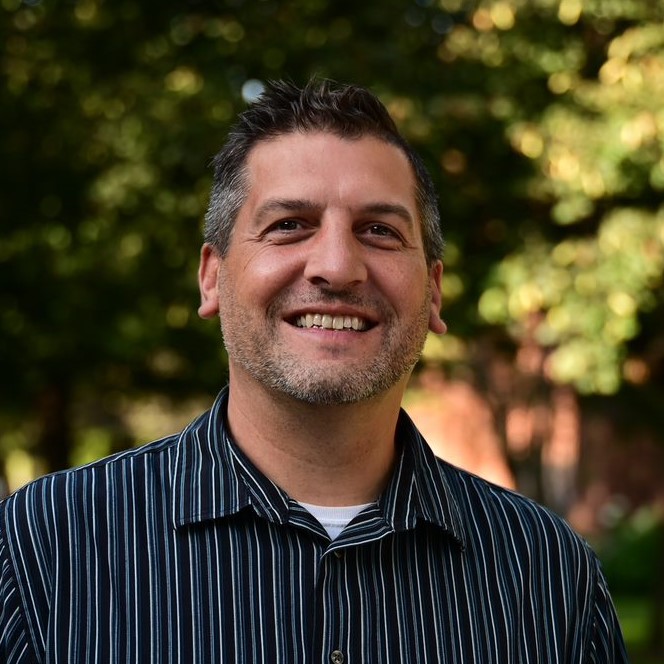 |
Is Christianity the only religion that gives the certainty of heaven? I want to understand so I can better share the gospel with others.
The parable of the blind men and the elephant has been handed down in various forms from Eastern religions. The basic story is that a number of blind men approach an elephant from different sides. One grasps the trunk and says it’s a snake. One feels the legs and describes the elephant as a tree. Another feels its side and concludes it’s a wall. Though each has a different description, they are all describing the same elephant.
Christianity is unique
Some use this story to illustrate that the world’s religions are describing the same God in different ways. Each describes the same thing from its own limited perspective. The story claims to show that each religion is “right” in its own way. No one can claim to have the objective truth about God. However, what the parable actually illustrates is that the blind men are equally wrong, not equally right. What the story does not consider is that God has revealed himself in Jesus so that we are no longer blind. We can see!
There are many world religions and various teachings within those religions. What sets Christianity apart from every other world religion is that every other world religion is work righteous. This means that they teach that people need to do right and moral things to become right with God and earn his blessings in this life or the next. Native American and African religions seek to appease the spirits of deceased relatives through ritual and sacrifice. Some Eastern religions seek to achieve moksha (i.e., release from the cycle of reincarnation) and nirvana through reincarnation, meditation, and in some cases, asceticism. Muslims seek the mercy of Allah by practicing the Five Pillars. The list goes on and on, but the common denominator is that you must do something to earn God’s blessing—including the hope of heaven or its equivalent.
Since every other world religion teaches that you must do something to be saved, the follower can never achieve absolute certainty of heaven. The question always remains, “Have I done enough?” Aside from the guarantee of salvation in Islam for martyrdom, certainty in salvation does not exist in other world religions. Only Christianity teaches that salvation comes 100 percent from God as an undeserved gift (John 3:16; John 19:30). Therefore, the Christian can be certain!
Certainty impossible apart from Christ
Yet even Christians are susceptible to thinking that we must contribute in some way to our salvation. By nature, we think according to the law (opinio legis) that we can and must do something to be right with God. The Bible, however, clearly warns how dangerous this thinking is: “You who are trying to be justified by the law have been alienated from Christ; you have fallen away from grace” (Galatians 5:4).
The quest for certainty in salvation is what led to the Reformation. Martin Luther fasted, confessed, and even beat his body trying to be right with God. Instead, he found peace with God when he read in the gospel that “the righteous will live by faith” (Romans 1:17). Luther said, “I began to understand that the righteousness of God is that through which the righteous live by a gift of God, namely by faith. . . . Here I felt as if I were entirely born again and had entered paradise itself through the gates that had been flung open” (Luther’s Works 34:336,337).
That God gives us the righteousness he demands in Jesus changes everything! In some ways, the Christian life may look similar to the lives of those in other religions, but the motivation is entirely different. Christians do not live a good life because they seek to gain some elusive certainty in salvation. Rather, Christians live a good life out of thanks for the certainty God has given them through the life, death, and resurrection of Jesus. Because of Jesus, God looks at you and me and says what he said of his Son: “This is my Son, whom I love, with you I am well pleased” (cf. Matthew 17:5). The Bible was written to give us all this certainty. “These are written that you may believe that Jesus is the Messiah, the Son of God, and that by believing you may have life in his name” (John 20:31).
Witnessing tips
All religious followers are looking for certainty; they just might not realize it. You have it in Jesus! If one looks inside oneself for certainty, the result will either be pride, despair, or uncertainty. Some delude themselves into thinking they have done enough and become proud of their works. Some listen to the right assessment of their conscience and despair of being able to accomplish salvation on their own. Still others will go through life always wondering if they have done enough to appease God.
Keep these thoughts in mind as you witness to your friends, relatives, associates, and neighbors about your certainty:
- Avoid dwelling on nonessentials. When witnessing, it can be tempting to tell others all of the things that are wrong with their religion. That’s easy to do; we know what’s wrong. But remember your goal. The goal is not to tear down another religion but to share truth. If you start by tearing down the prophet Muhammed with a Muslim or Joseph Smith with a Latter-day Saint, you will likely put that person on the defensive. He or she quickly will refuse to listen to anything else you might say. You might compare it to someone immediately attacking someone like Martin Luther when trying to witness to a Lutheran.
- “I listen, you speak. You listen, I speak.” No one wants to feel preached at. When speaking with someone from a different religion, it easily can turn into an argument with both trying to defend their position. Often, neither is really listening to the other. Earn the right to speak by really listening to the other person. Knowing what the other person believes rather than simply assuming it will go a long way in showing that you respect the other person enough to listen. Then when it’s your turn to speak, the other person will more likely listen to you.
- Preach the gospel. Every witnessing situation needs to involve telling others about Jesus and what he has done for you and for them. Feel free to show how the love of Jesus has changed your life personally, but make sure to explain your need for the Savior as well as who that Savior is and why you have certainty in your salvation.
In the end, all of your arguments cannot accomplish faith. Only God can do that through his powerful gospel message: “I am not ashamed of the gospel, because it is the power of God that brings salvation to everyone who believes” (Romans 1:16).
As someone has said, “God doesn’t love you because you are beautiful. Rather, you are beautiful because God loves you.” What a blessing to have such certainty because of Jesus!
Have a question, ask it here!
Author: David Scharf
Volume 109, Number 06
Issue: June 2022
- Q&A: What would Jesus think about all the different Christian denominations?
- Q&A: Are there times when it is okay to lie?
- Q&A: What advice does the Bible have for single people?
- Q&A: How do I know I am elected by God?
- Q&A: Why is Pontius Pilate immortalized in our creeds?
- Q&A: How does remembering my baptism help with the guilt I carry?
- Q&A: Do parts of the Bible teach works righteousness?
- Q&A: How can I overcome my struggle with lust and pornography?
- Q&A: How should I help my child struggling with same-sex attraction?
- Q&A: Should Christians pray to saints?
- Q&A: Is anger sinful?
- Q&A: How can parents encourage adult children who wander from the faith?
- Q&A: Does the doxology belong in the Lord’s Prayer?
- Q&A: Is God fair?
- Q&A: When we pray, “Your kingdom come,” what are we praying for?
- Q&A: How can I better manage what God has given me this year so that I glorify him?
- Q&A: What are ways to glorify God besides singing in church?
- Q&A: I have no special gifts, and I mess up all the time. Does God really need me?
- Q&A: How do I overcome the feeling that my life has no purpose and I don’t make a difference?
- Q&A: My friend died and was not a professing Christian. What do I say to the family?
- Q&A: How can my mother and I forgive my father for being unfaithful and causing my parents to divorce?
- Q&A: Why were demon possession, gifts of healing, and gifts of tongues more prevalent in biblical times?
- Q&A: Is Christianity the only religion that gives the certainty of heaven?
- Q&A: If people go to hell, isn’t it their fault because God gave them free will and they rejected him?
- Q&A: Why are the 40 days between Jesus’ resurrection and his ascension important for the disciples and for us?
- Q&A: Can you explain Jesus’ words to the wailing women he met on his way to be crucified?
- Q&A: What if spouses don’t “love” each other anymore?
- Q&A: Is it wrong to have a cross with Jesus’ body on it?
- Q&A: Is our time of grace really unchangeable?
- Q&A: I know that we are saved by grace apart from works, but how can it be that easy?
- Q&A: Are there degrees of glory in heaven as a reward for good works?
- Q&A: Do Lutherans take the Bible literally and teach millennialism?
- Q&A: Are there different interpretations of the Bible?
- Q&A: How can we be sure the Bible includes what God originally gave us?
- Q&A: Why does it seem like Christianity is so negative?
- Q&A: How can I explain how Jesus’ resurrection is possible and if the Bible is reliable?
- Q&A: Is it okay to live together if we are planning to get married?
- Q&A: How is the Bible God’s Word?
- Q&A: Were we “created to make a difference”?
- Q&A: Am I being judgmental if I point out someone’s sin?
- Q&A: Do I need to read the Bible to have a relationship with God?
- Q&A: Can a Christian vote for a political candidate who supports abortion?
- Q&A: Does God really care?
- Q&A: Does it really matter how God made the world?
- Q&A: Does God send people to hell?
- Q&A: Is death natural?
- Q&A: How can I forgive and forget?
- Q&A: Does God help those who help themselves?
- Q&A: How can we say that the Old Testament God is the same as the New Testament God?
- Q&A: Is Jesus the only way to get to heaven?
- Q&A: Doesn’t God want me to be happy?
- Light for our path: Does God hate us?
- Light for our path: What kind of comfort can you give someone when a loved one commits suicide?
- Light for our path: What does a submissive wife in a Christian marriage look like?
- Light for our path: Is it a sin to want to die from a terminal illness?
- Light for our path: What advice can you give about applauding in church?
- Light for our path: Can you please explain Matthew 5:20?
- Light for our path: What is karma?
- Light for our path: Can the devil personally be tempting me and a lot of other people at exactly the same time?
- Light for our path: Does the word Easter refer to Ishtar, the Babylonian fertility goddess?
- Light for our path: What role does emotion play in contrition?
- Light for our path: What does the white stone in Revelation 2:17 mean?
- Light for our path: Is the cross symbol now anti-Christian?
- Light for our path: Were Joseph and Mary engaged or married when Joseph learned of Mary’s pregnancy?





